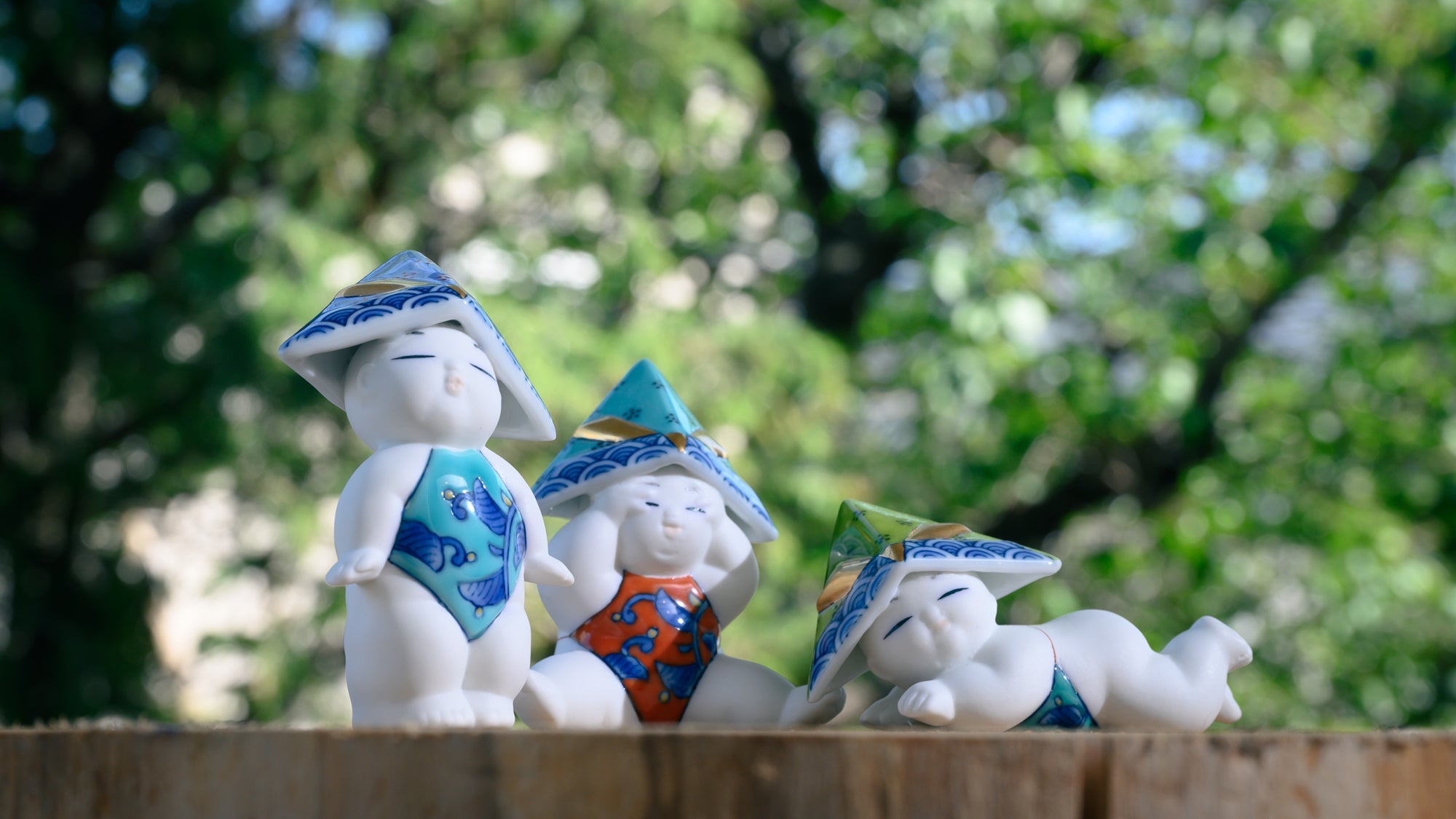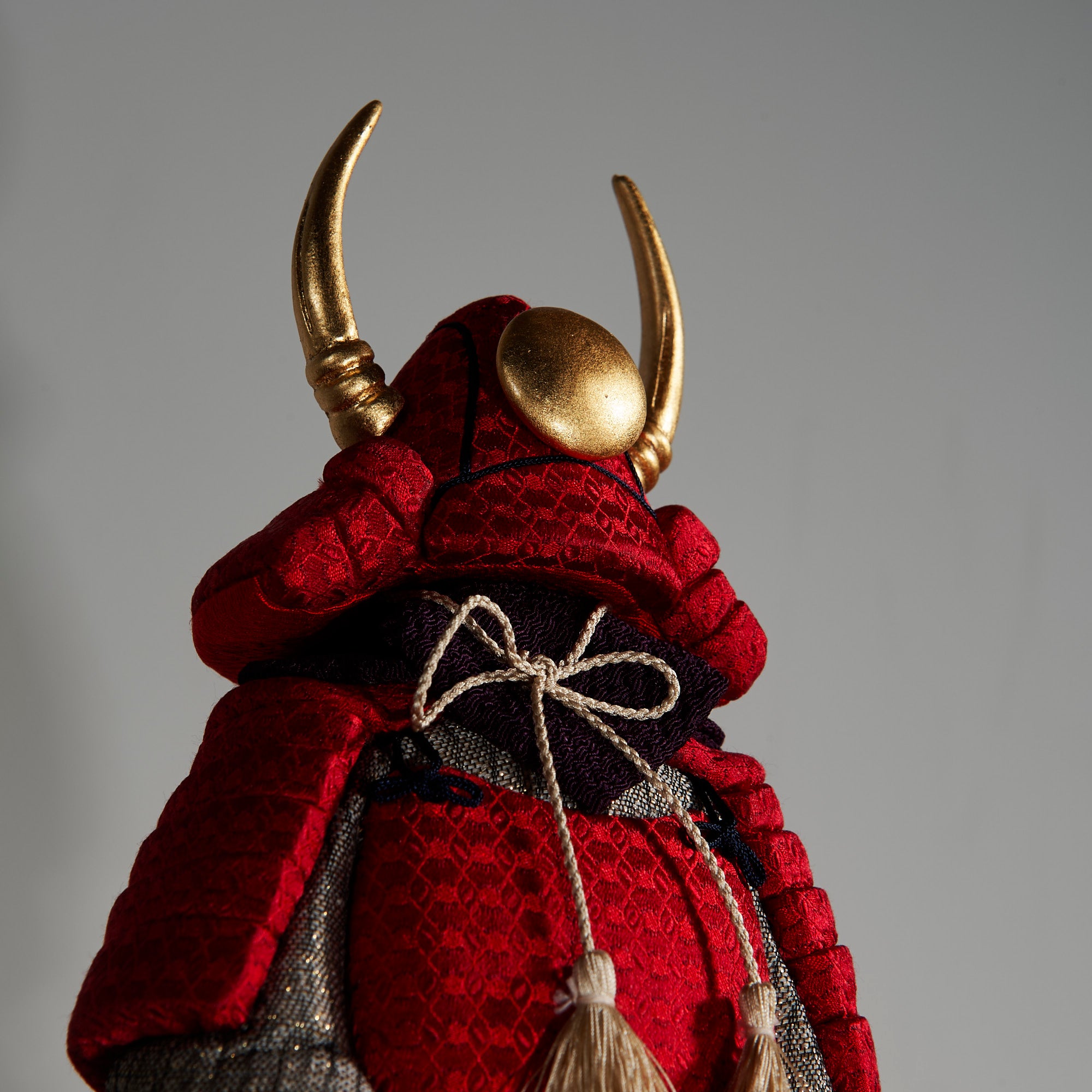
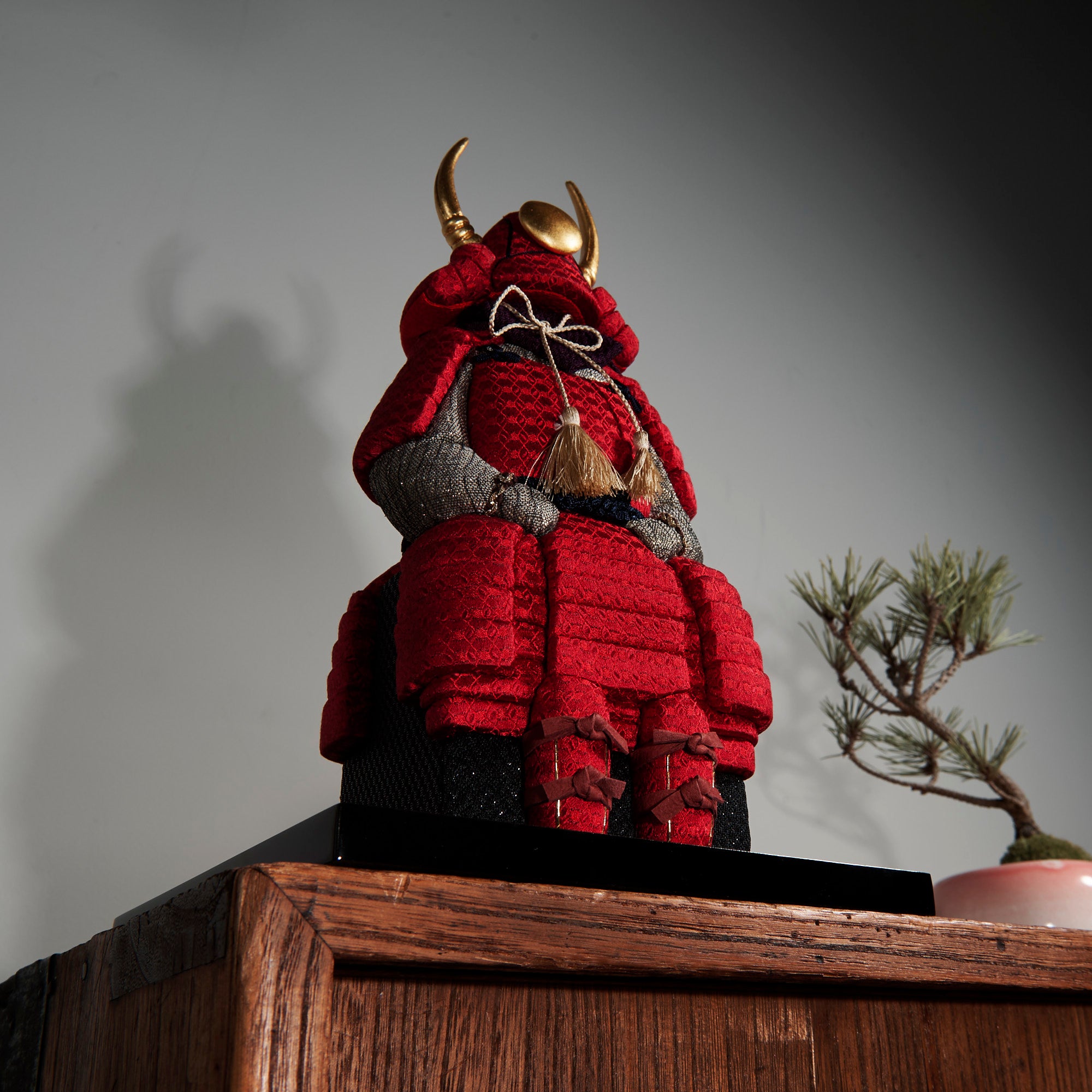
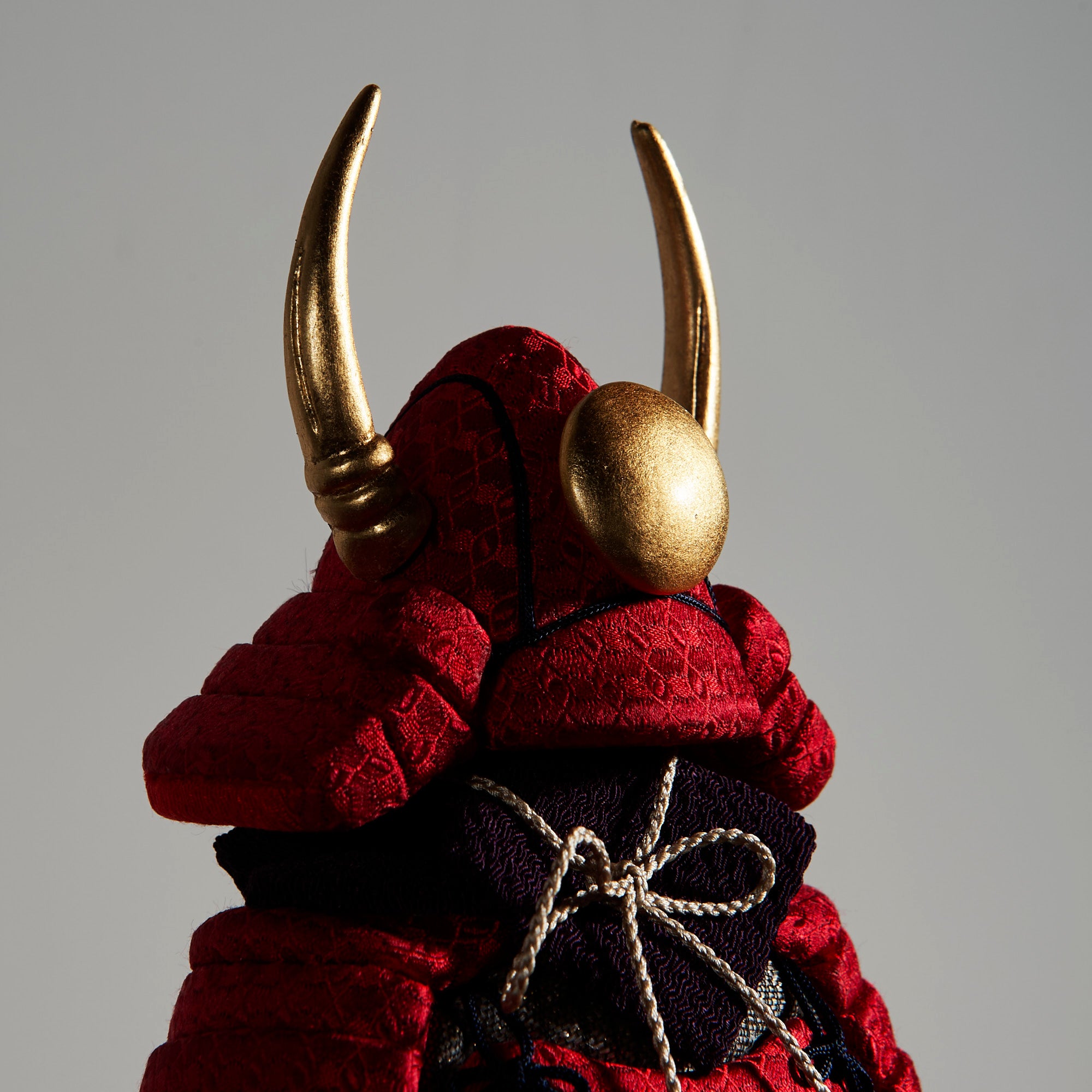
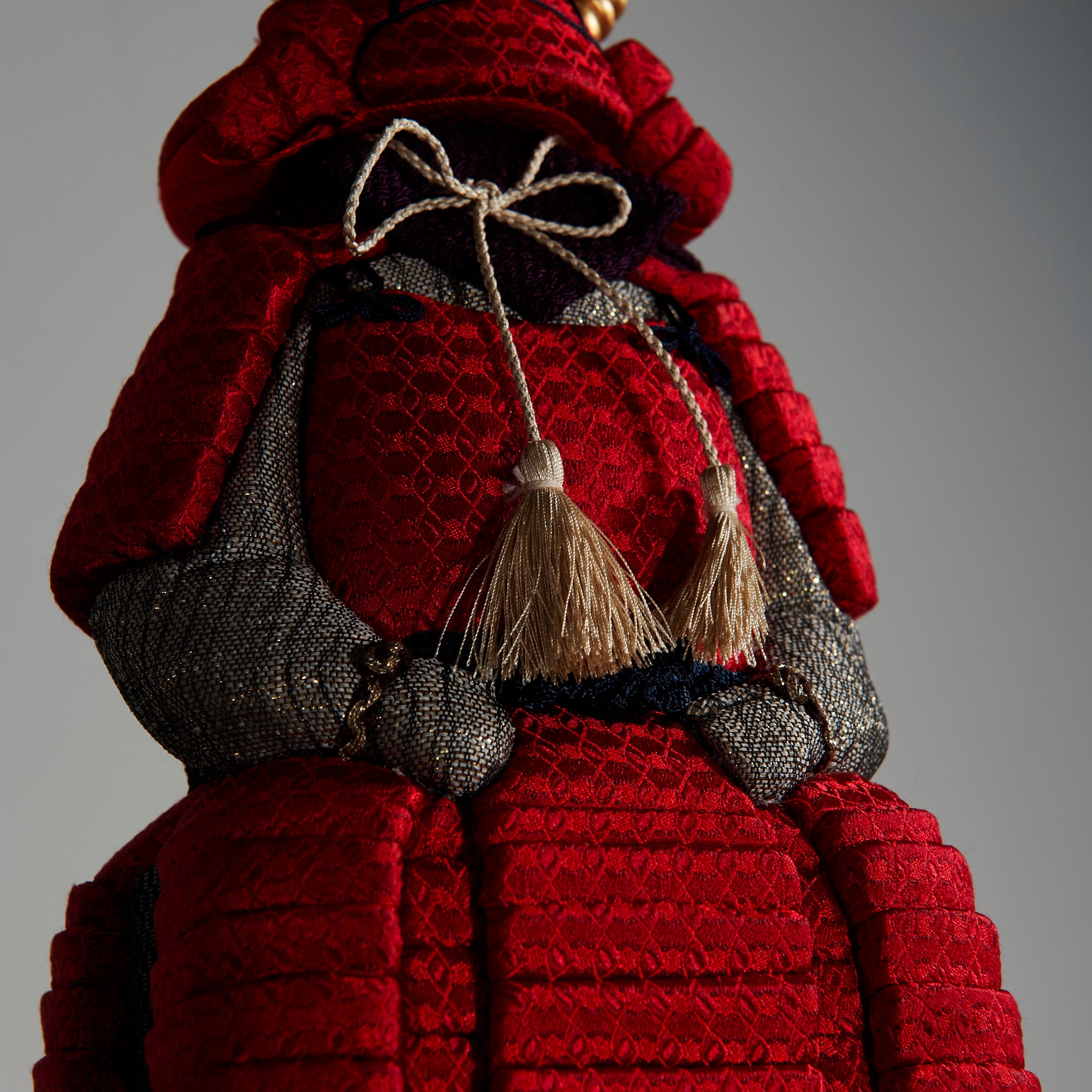
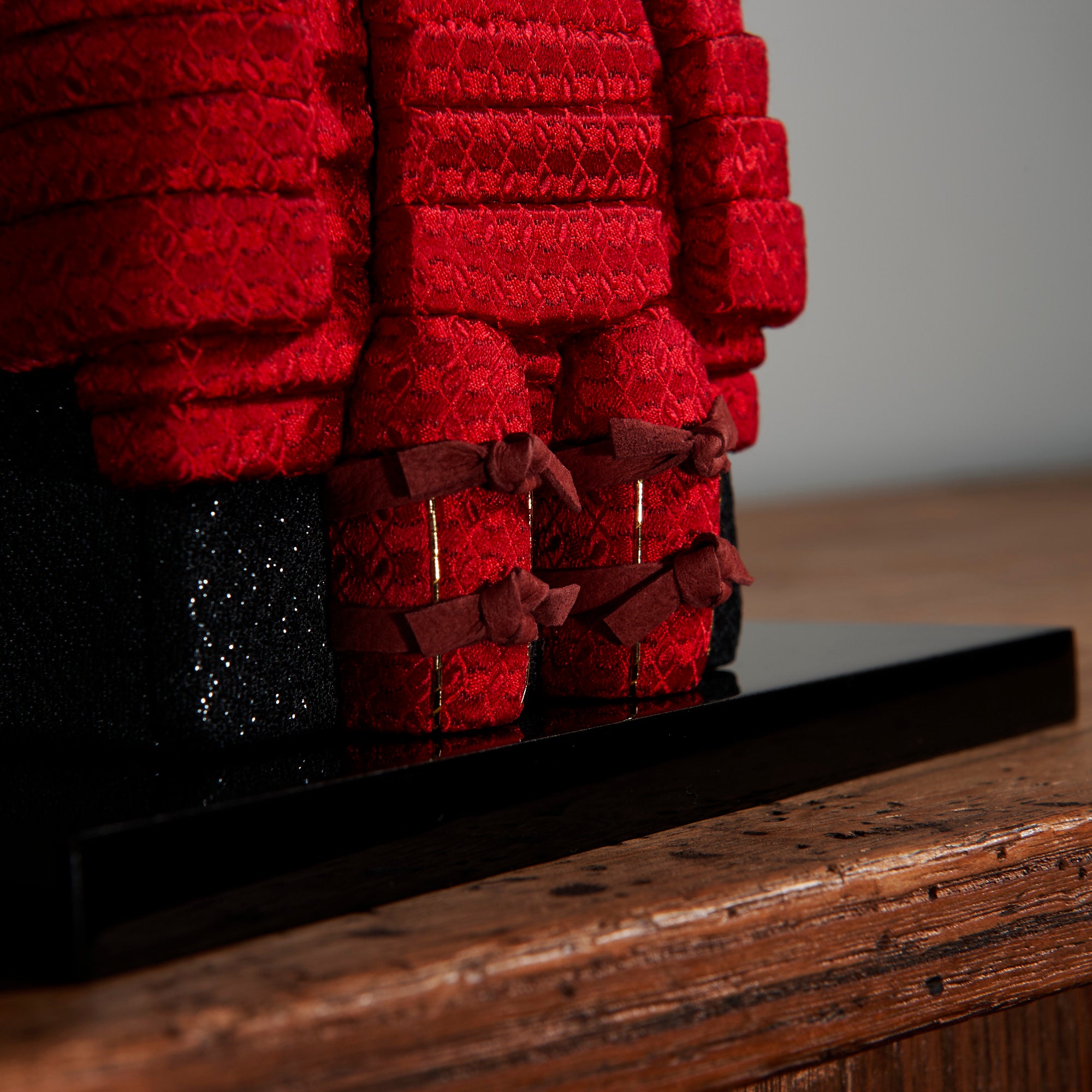
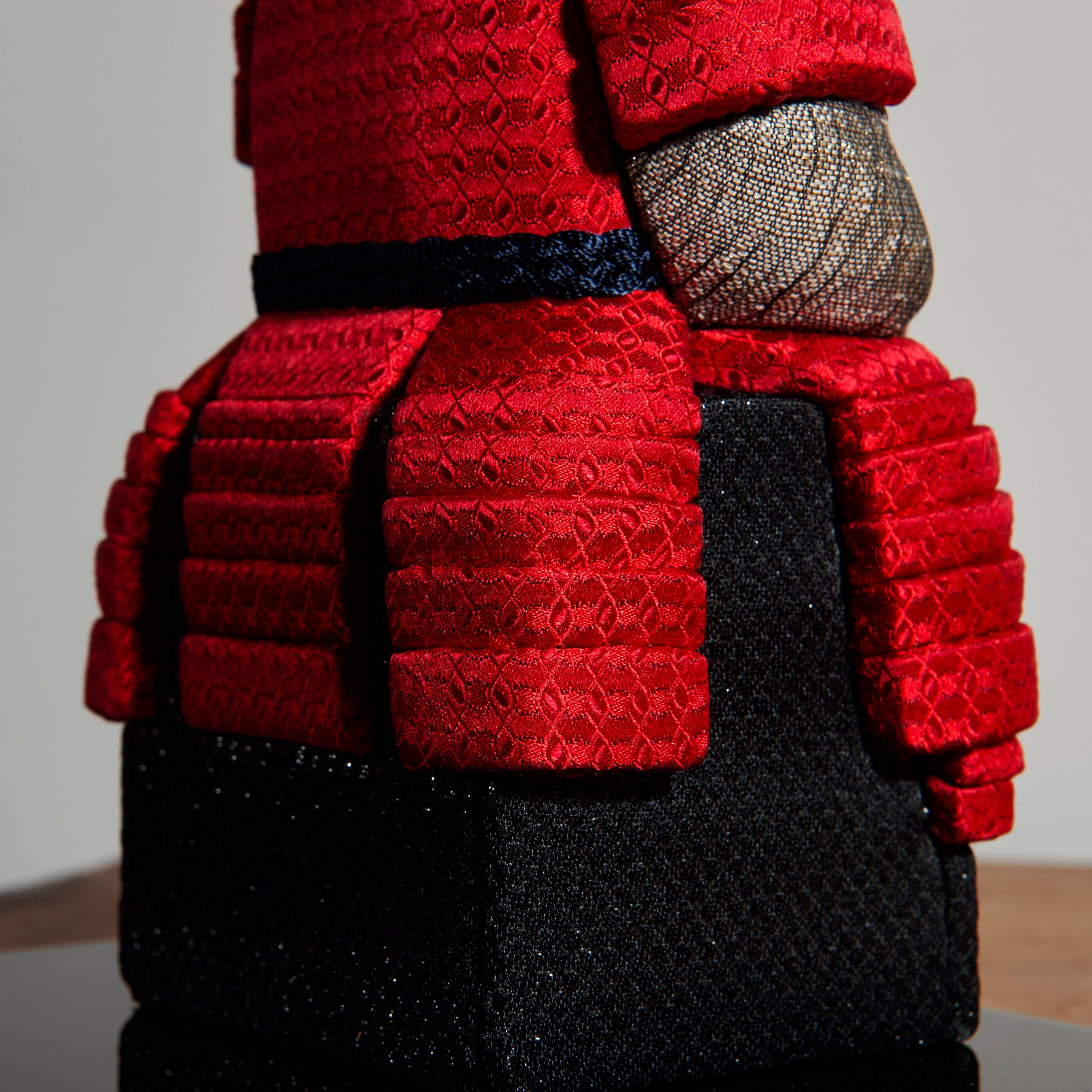
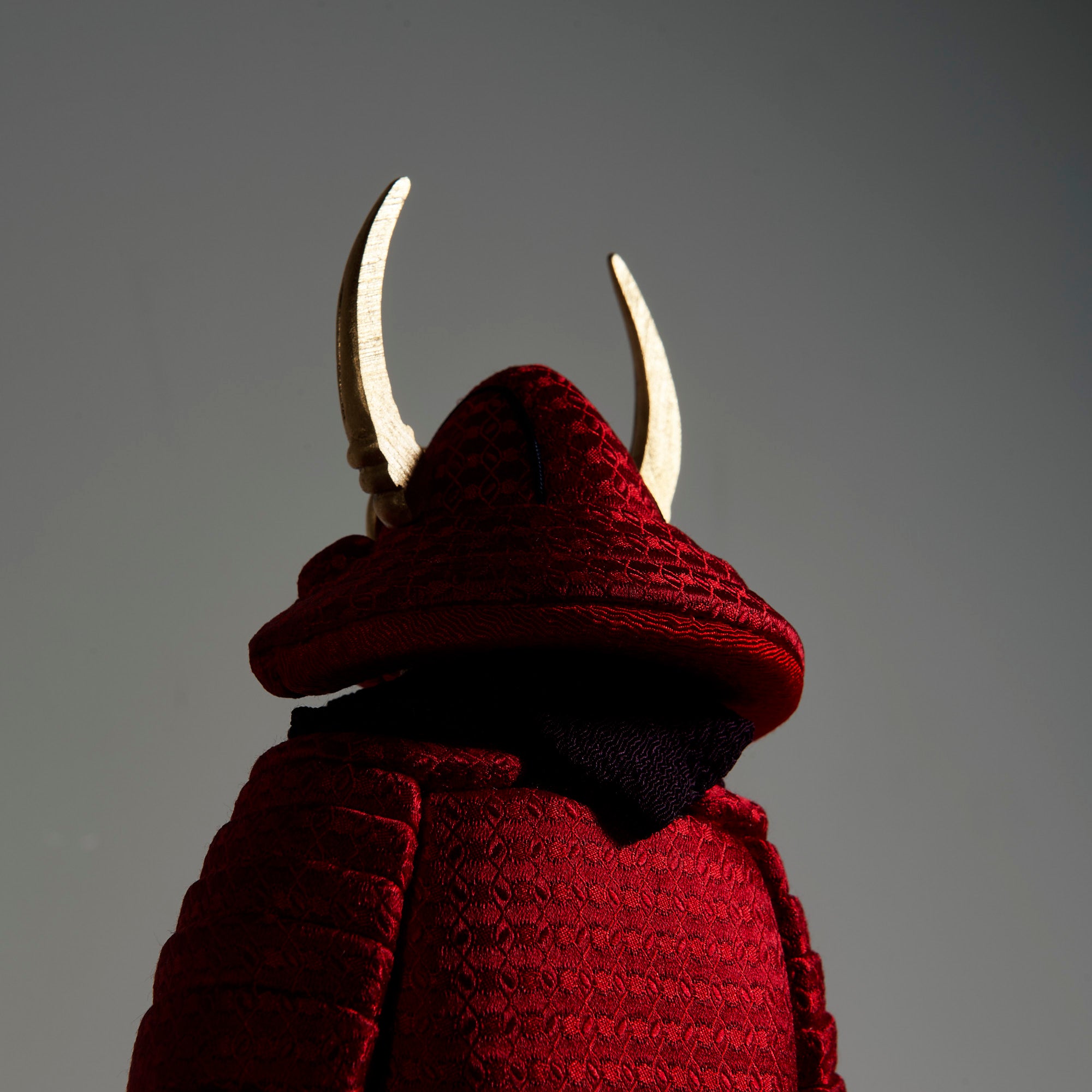
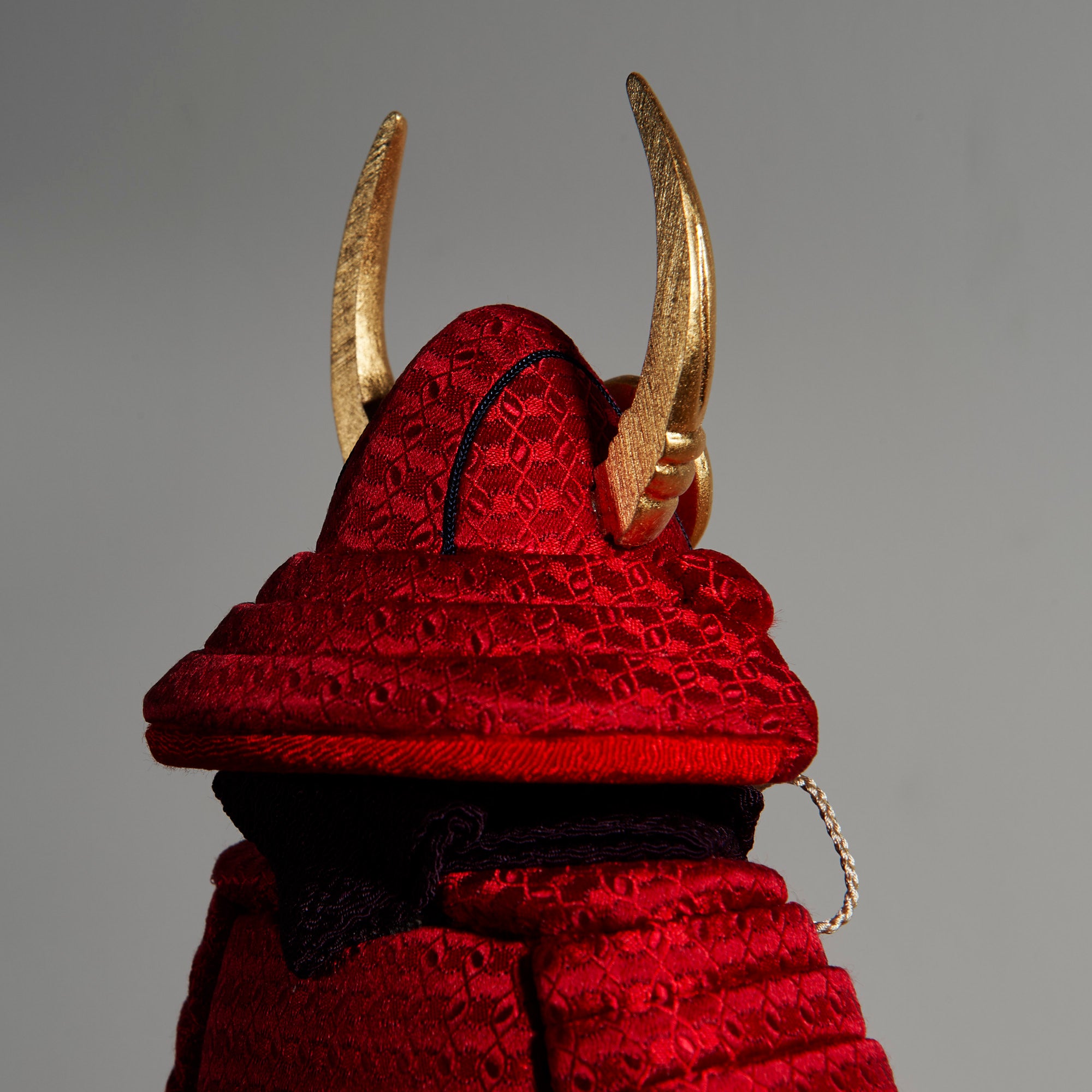
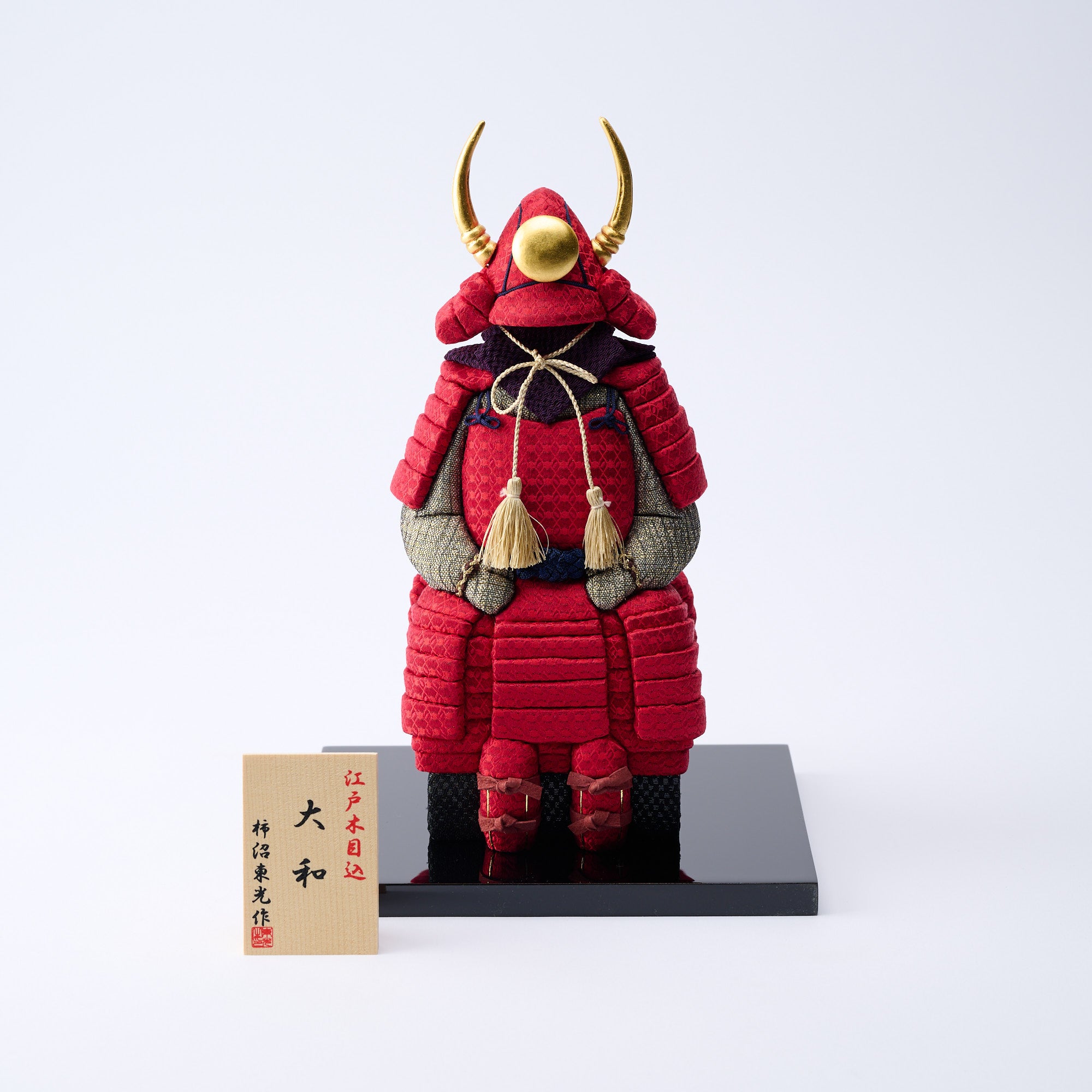
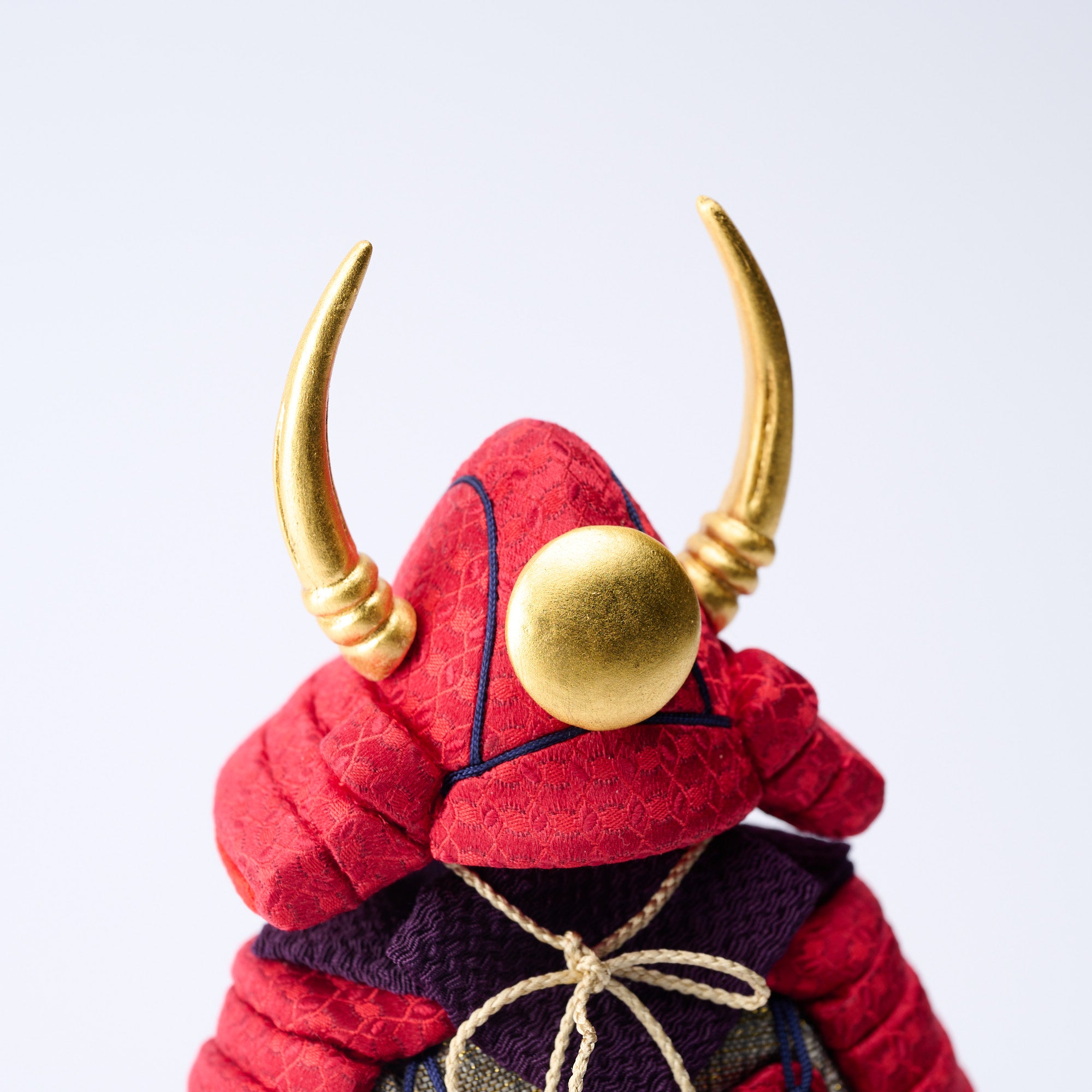
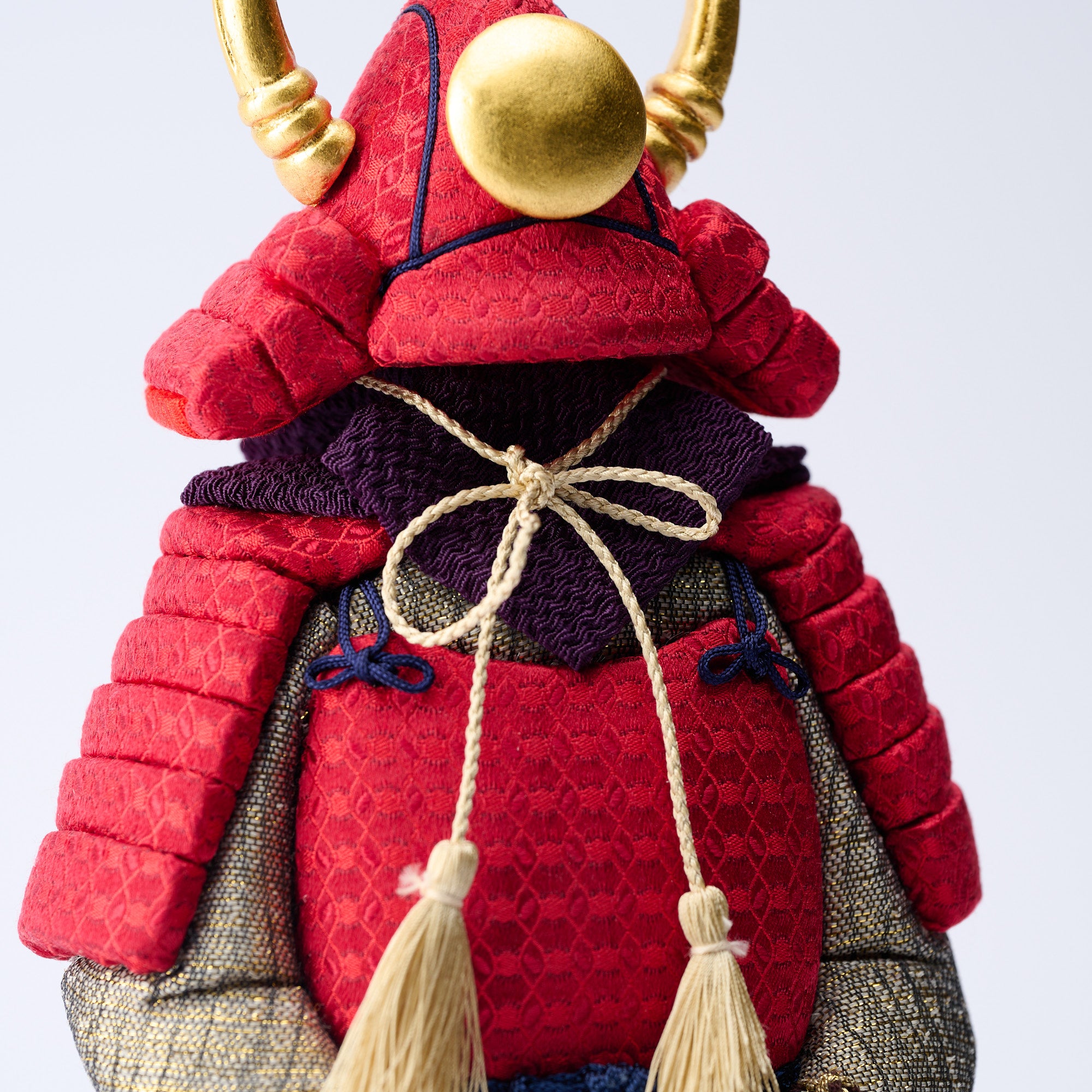
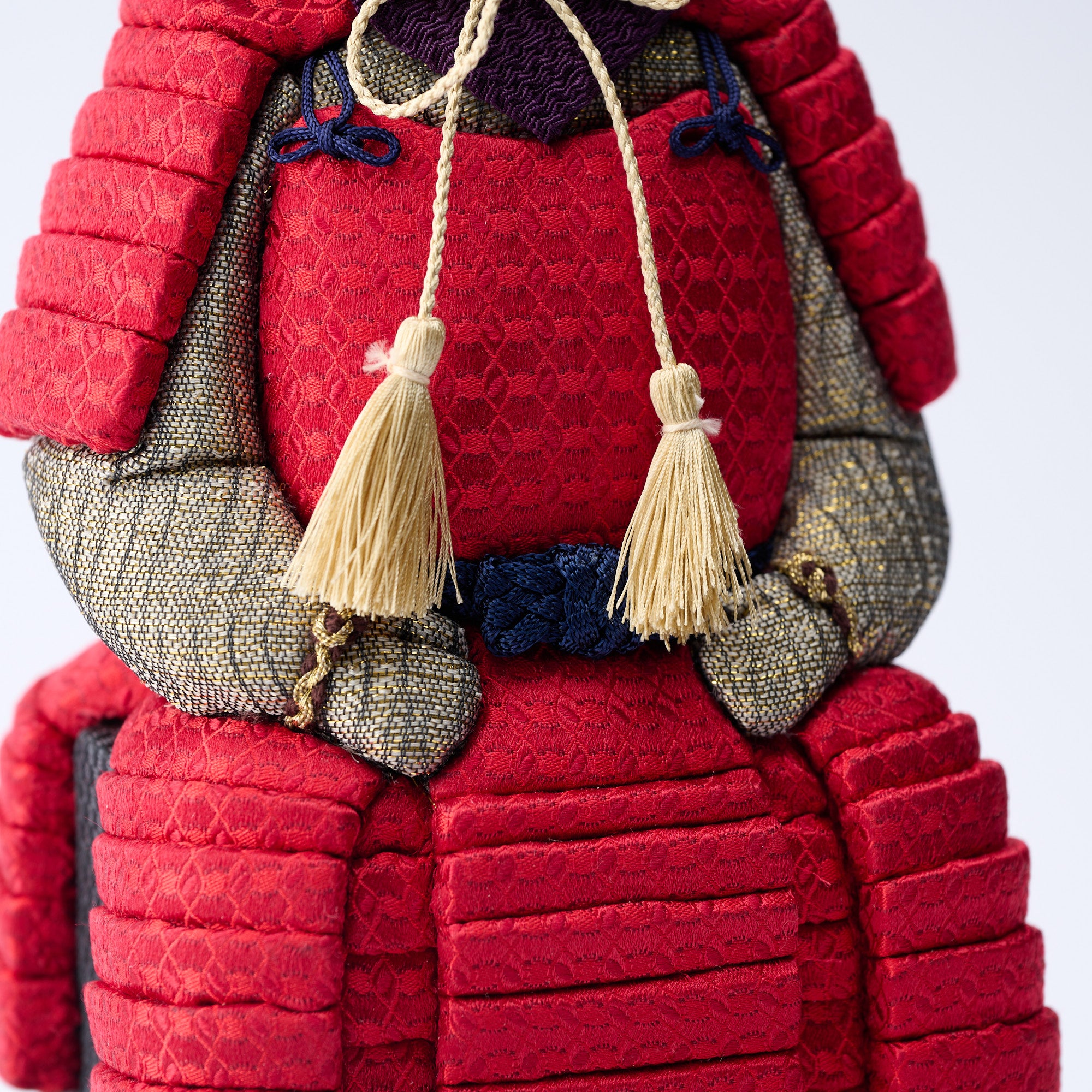
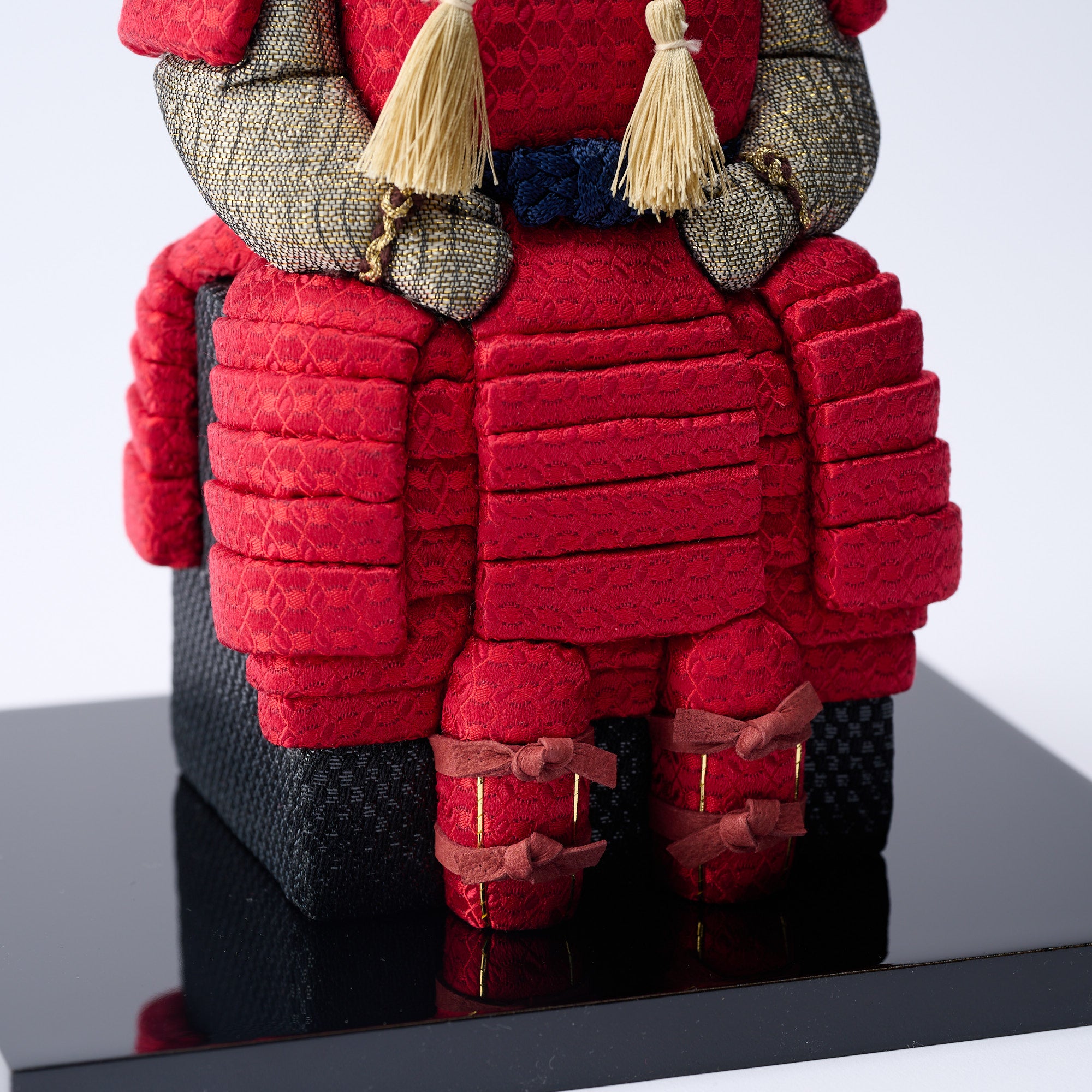
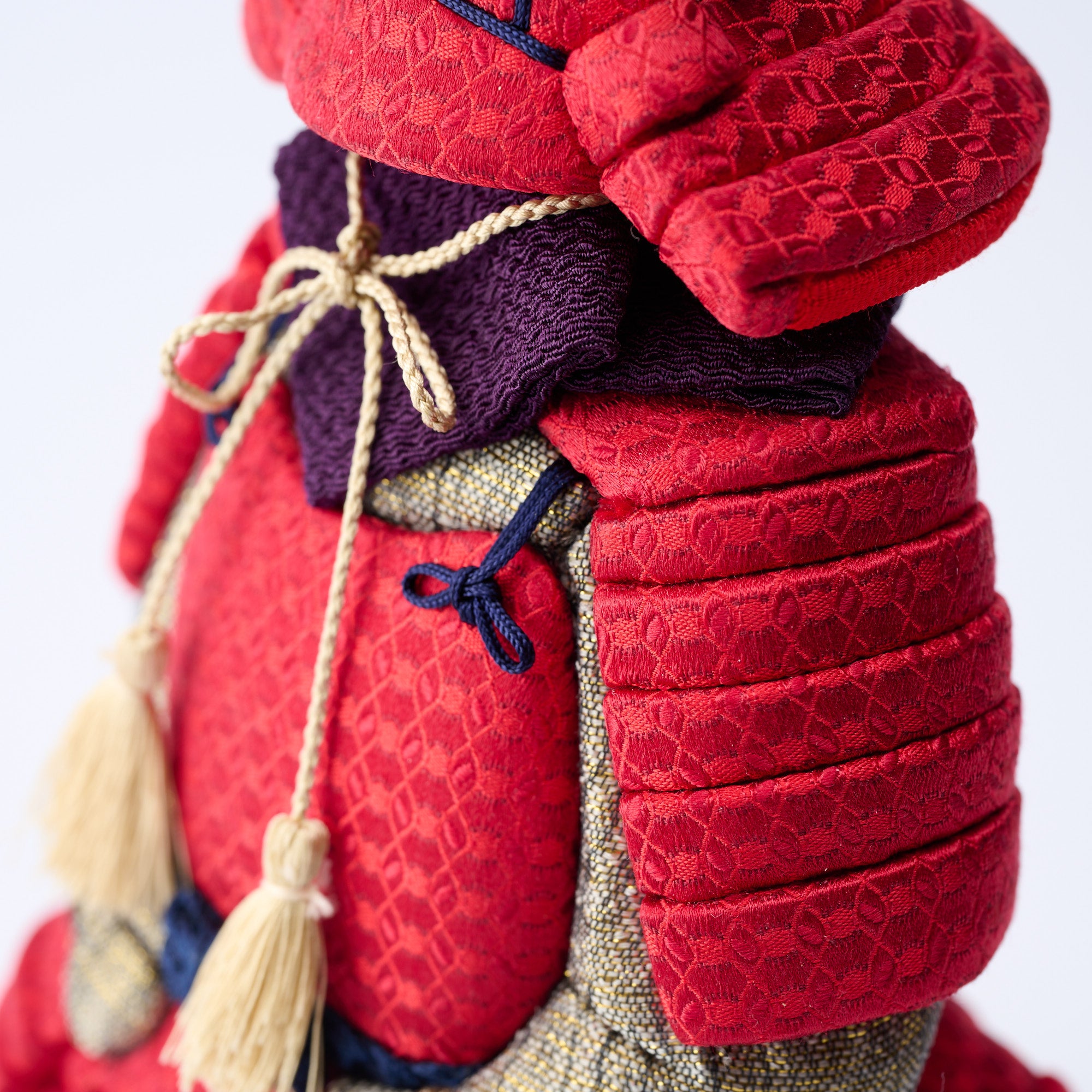
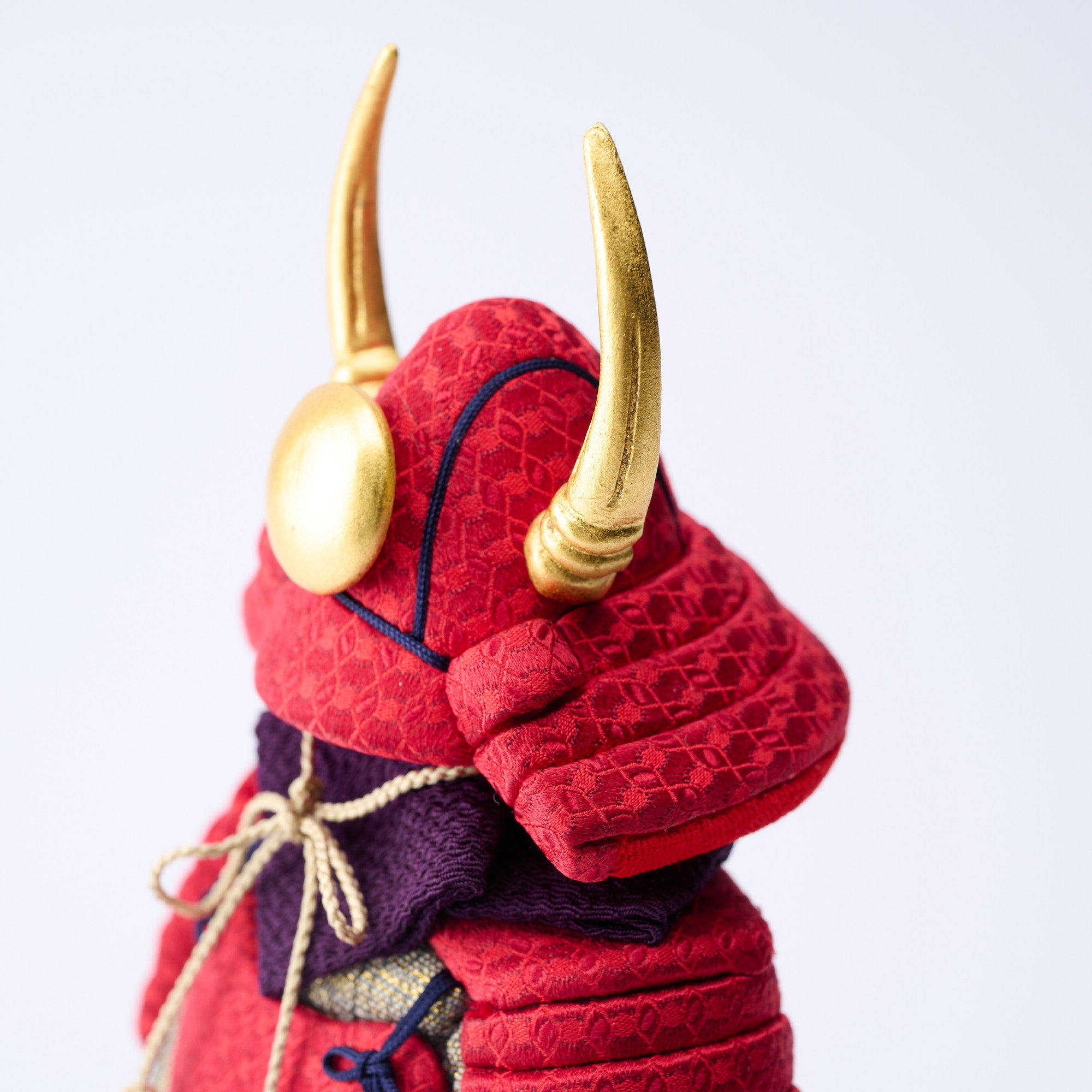
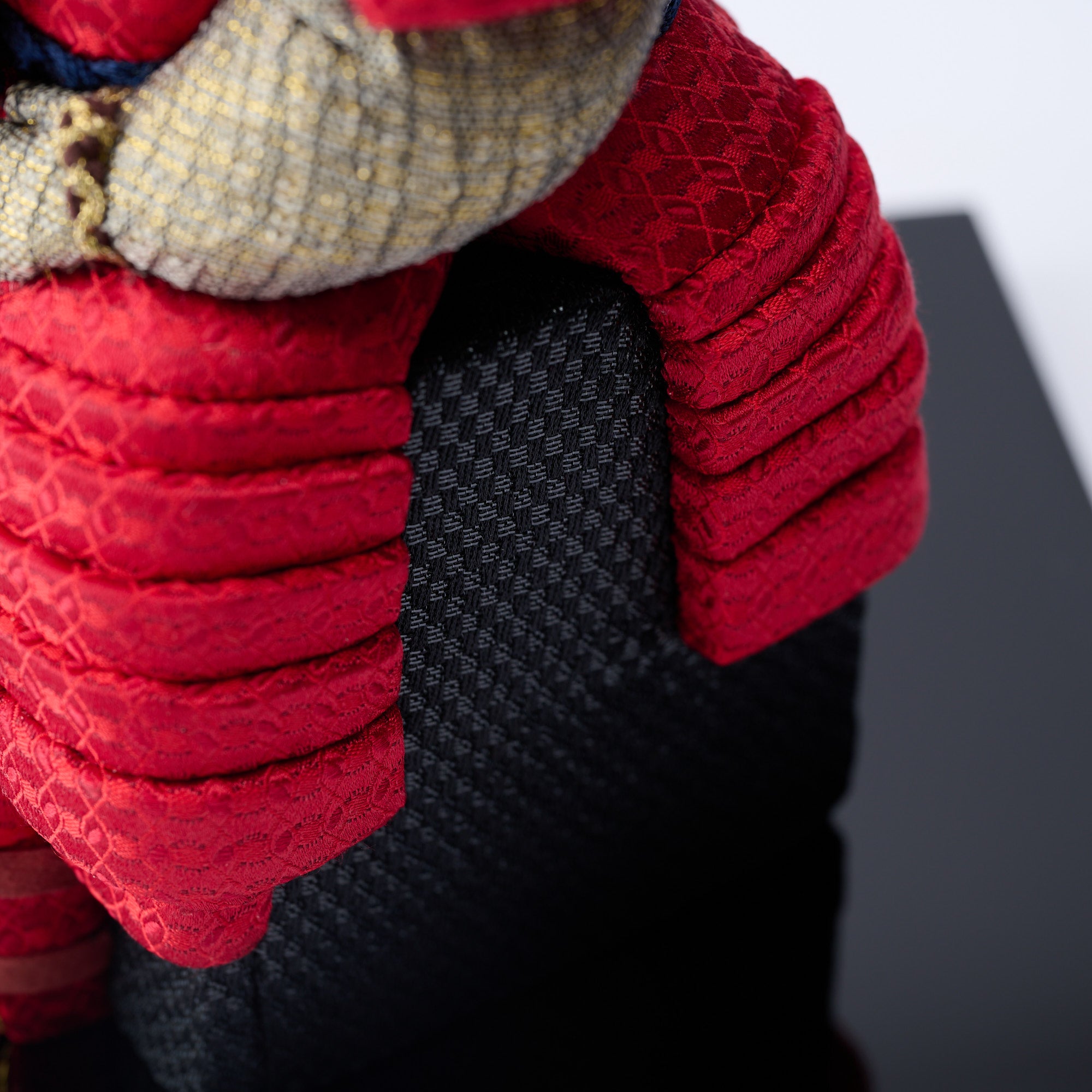
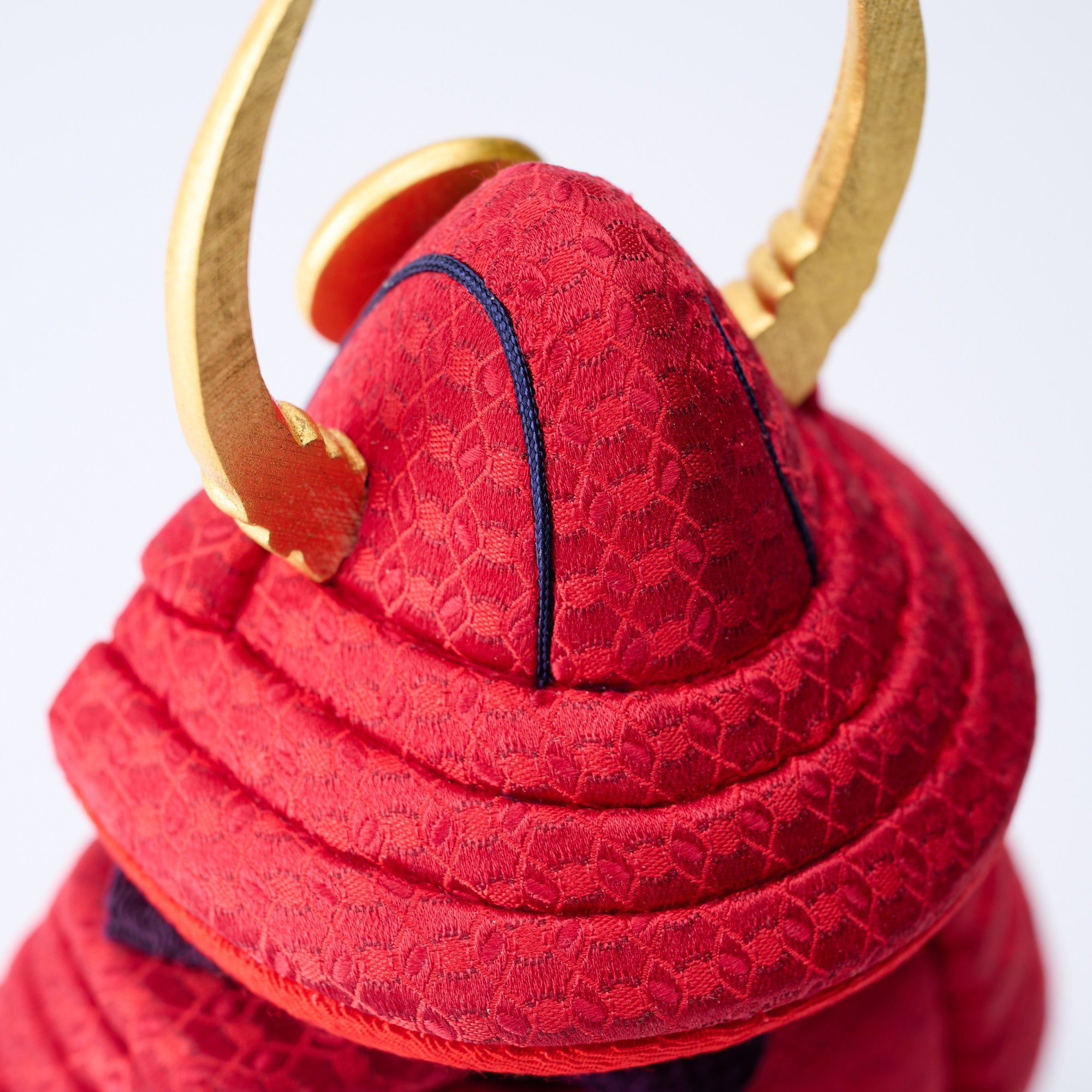
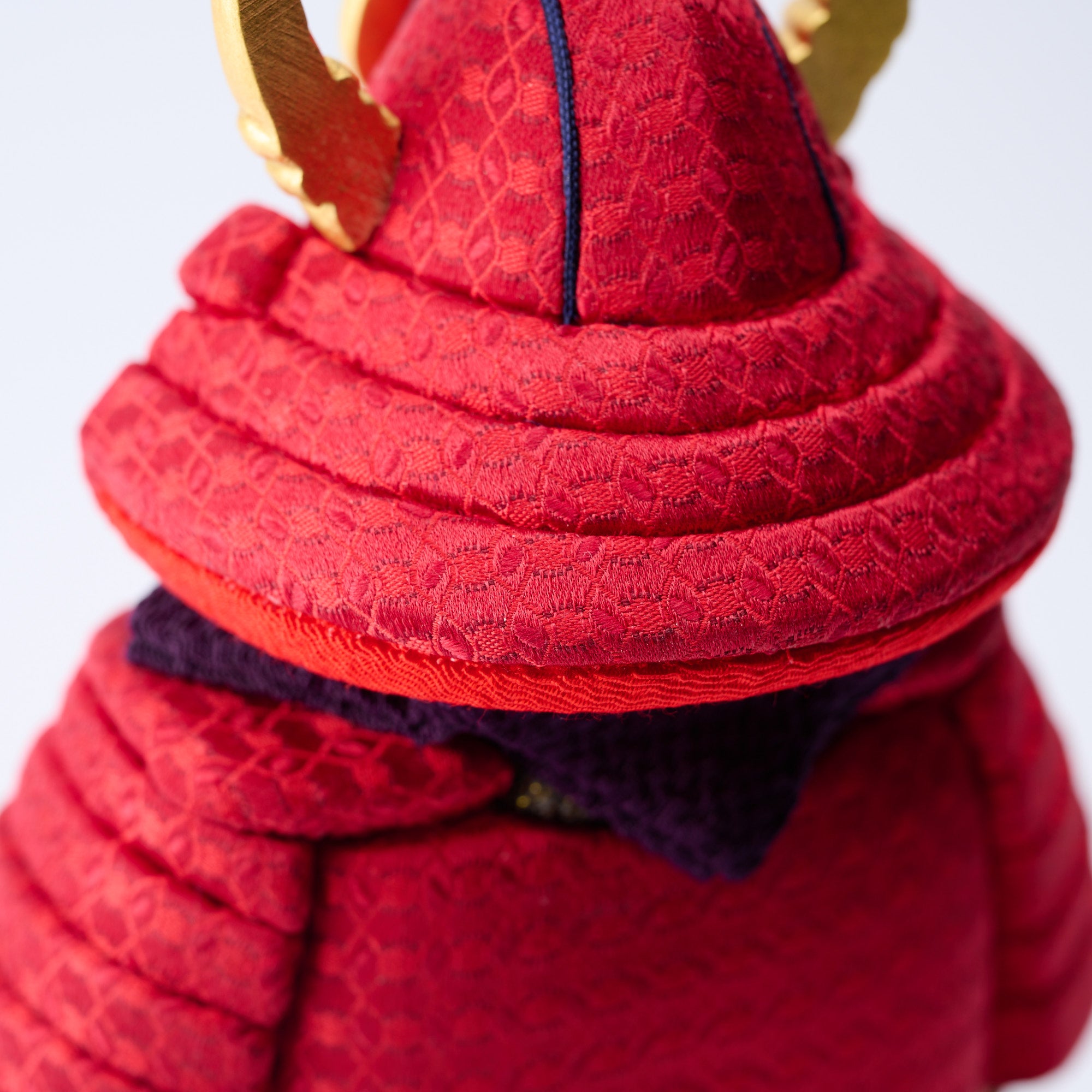
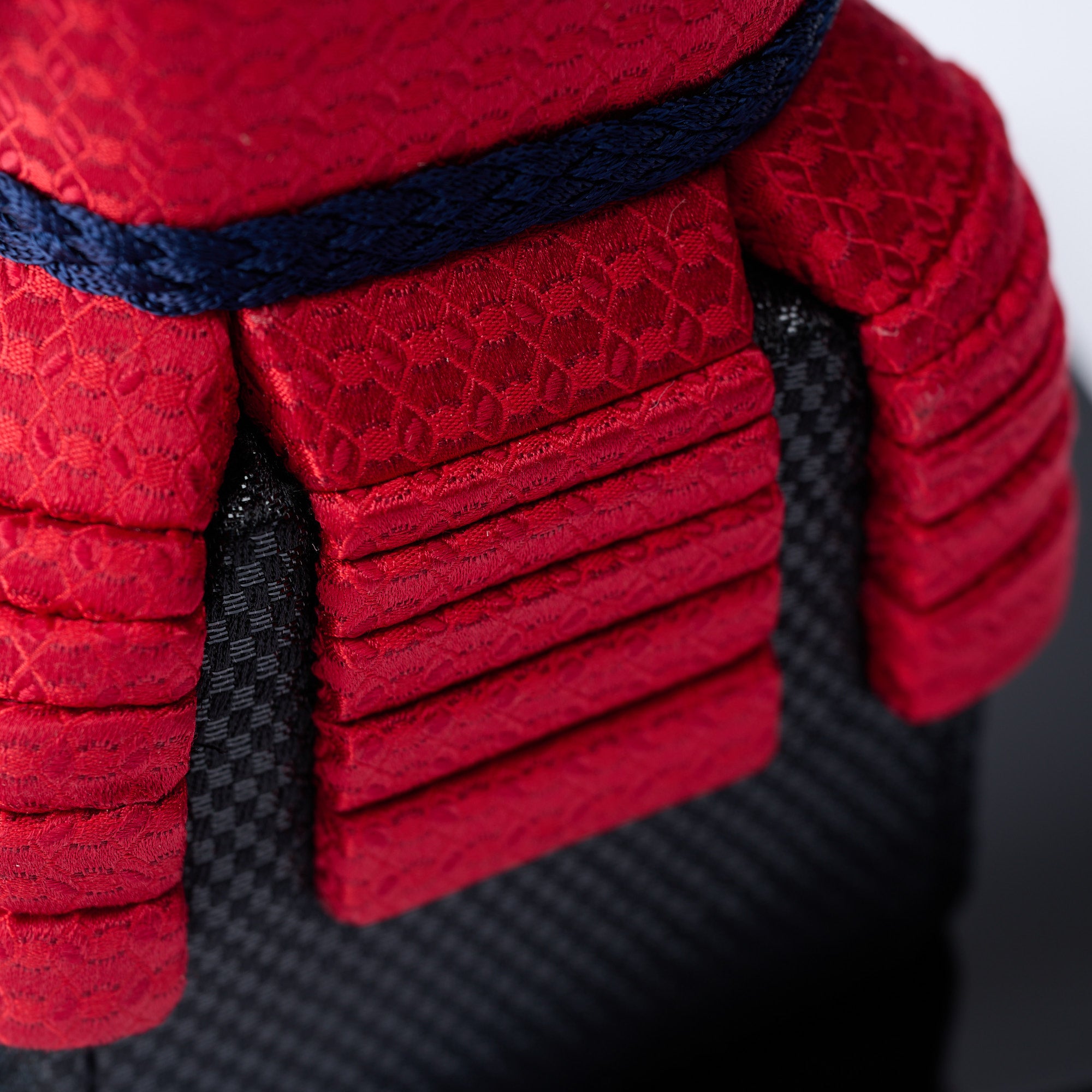
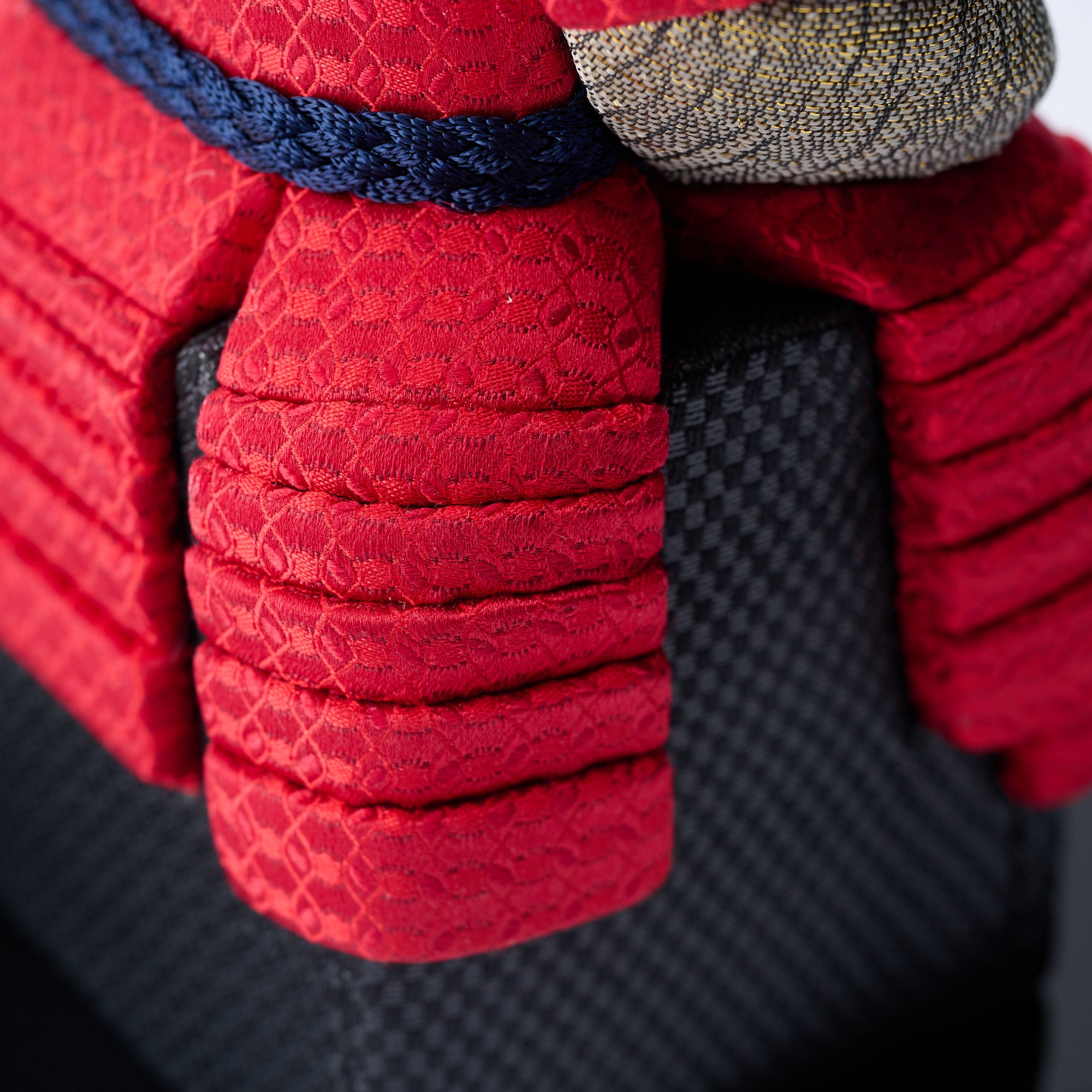
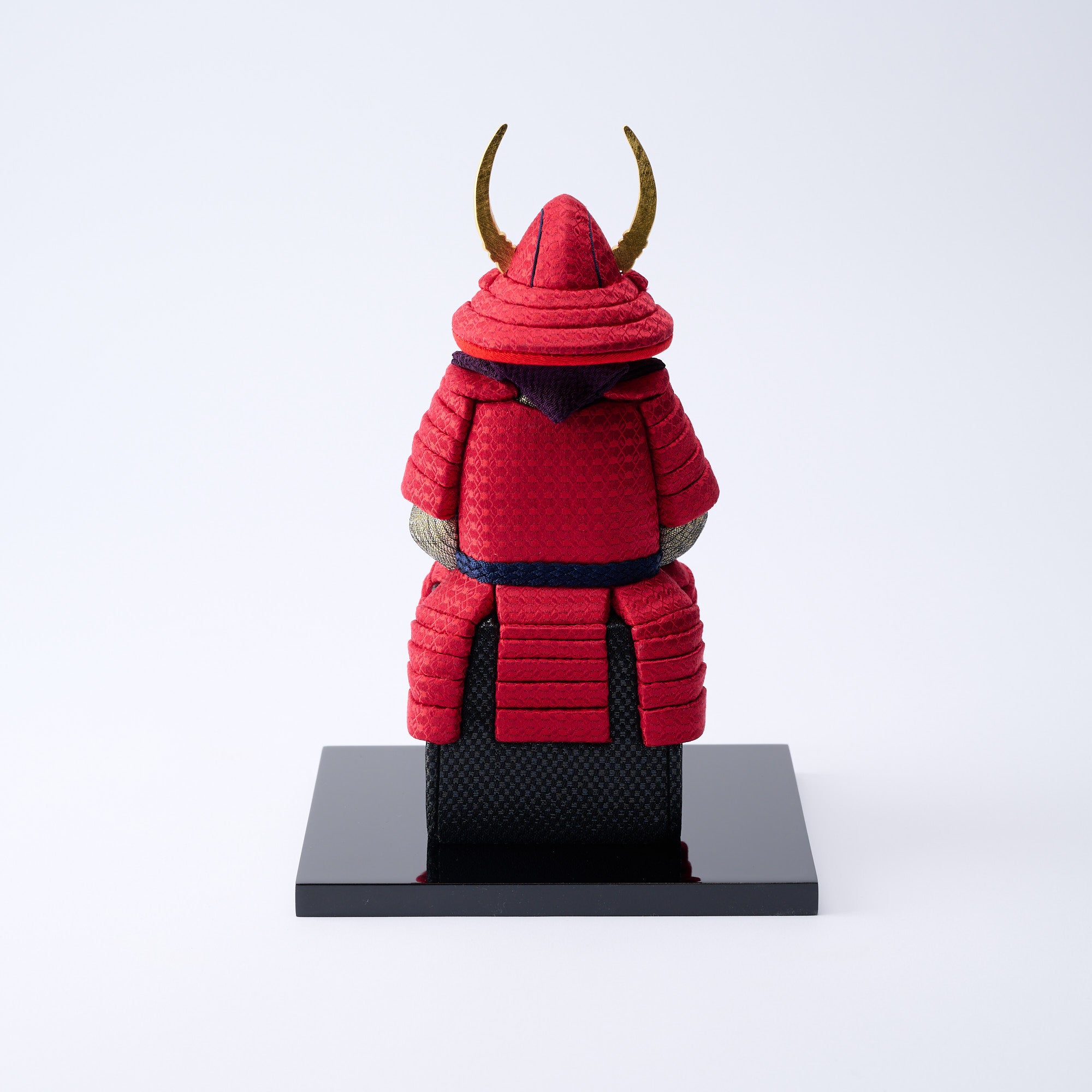
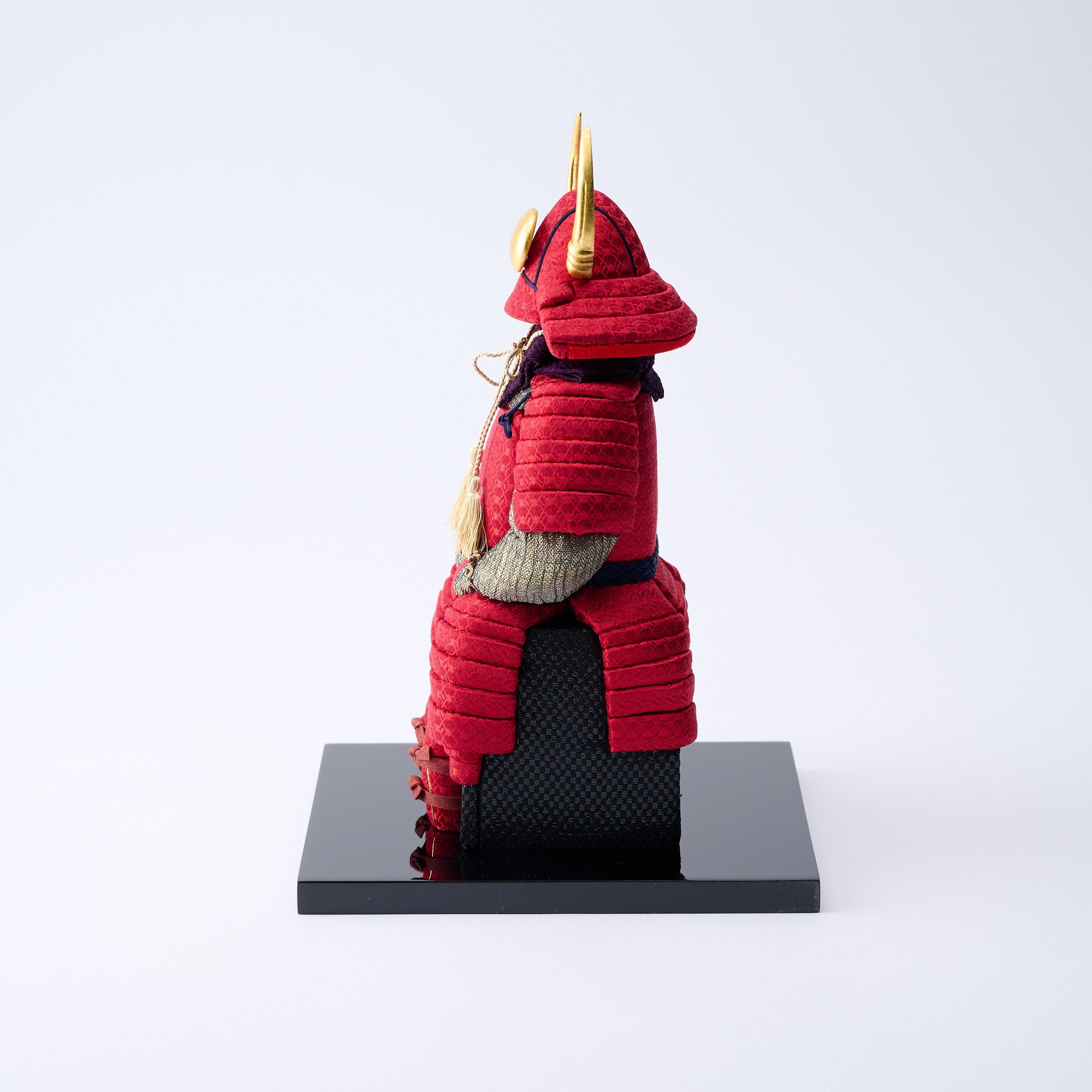
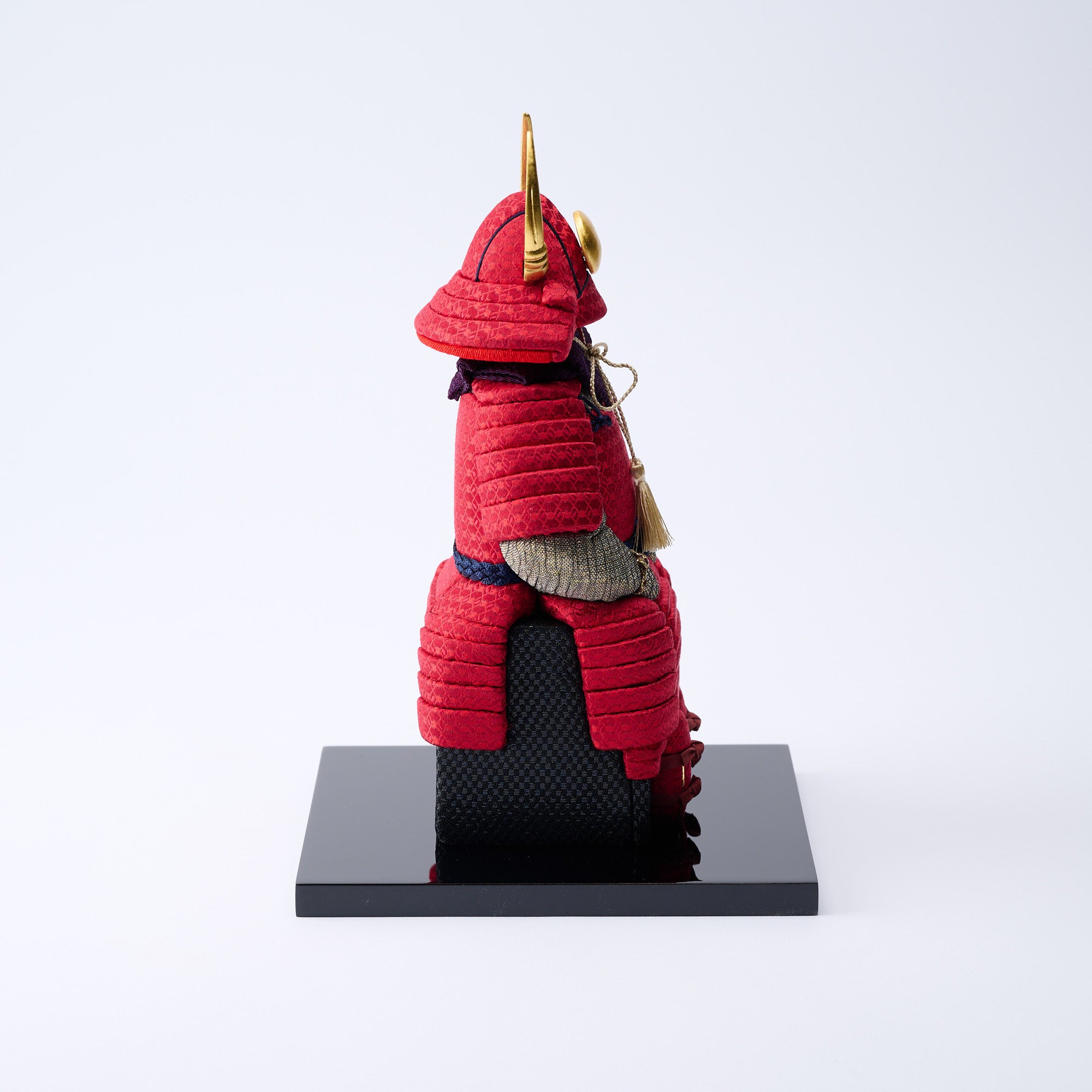
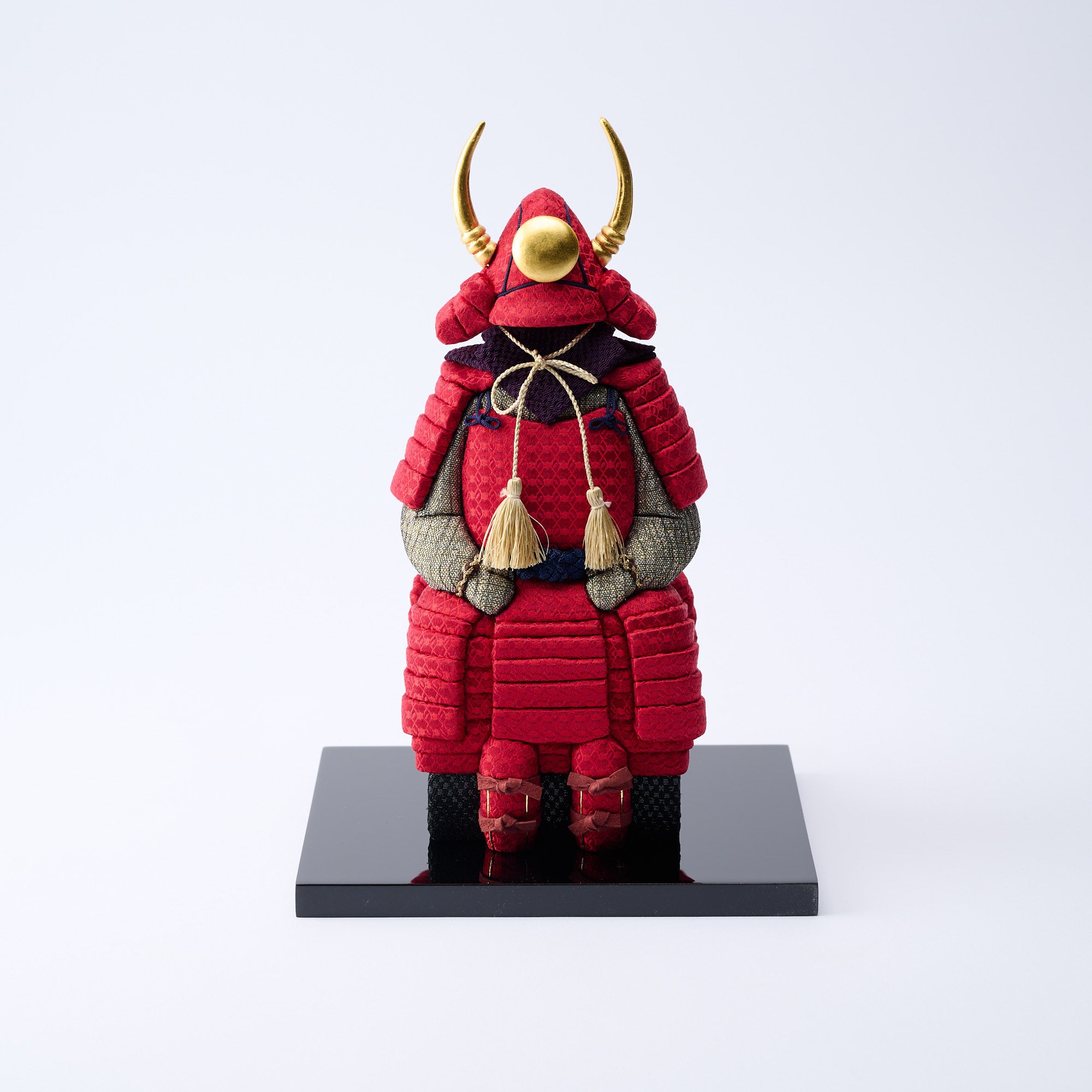
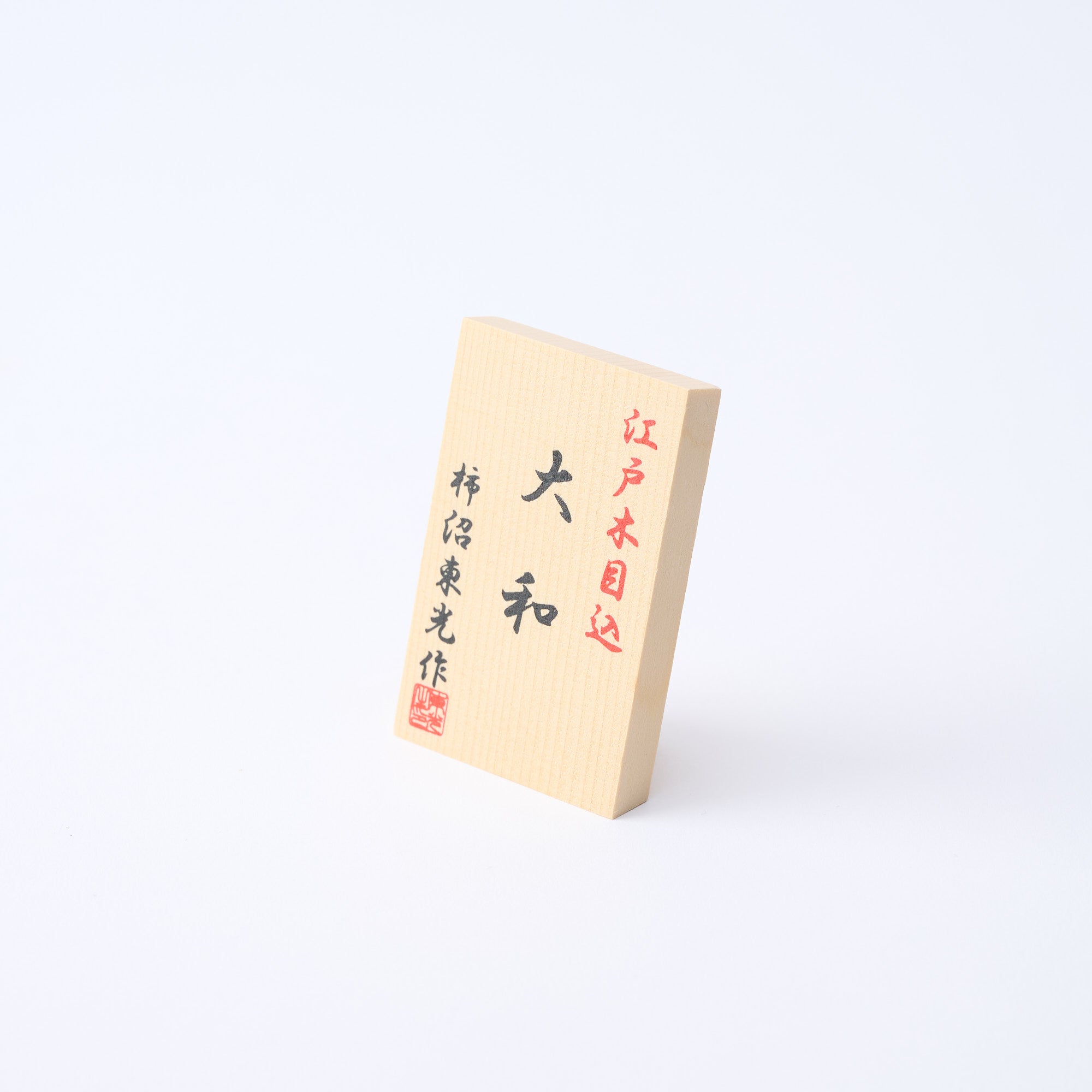
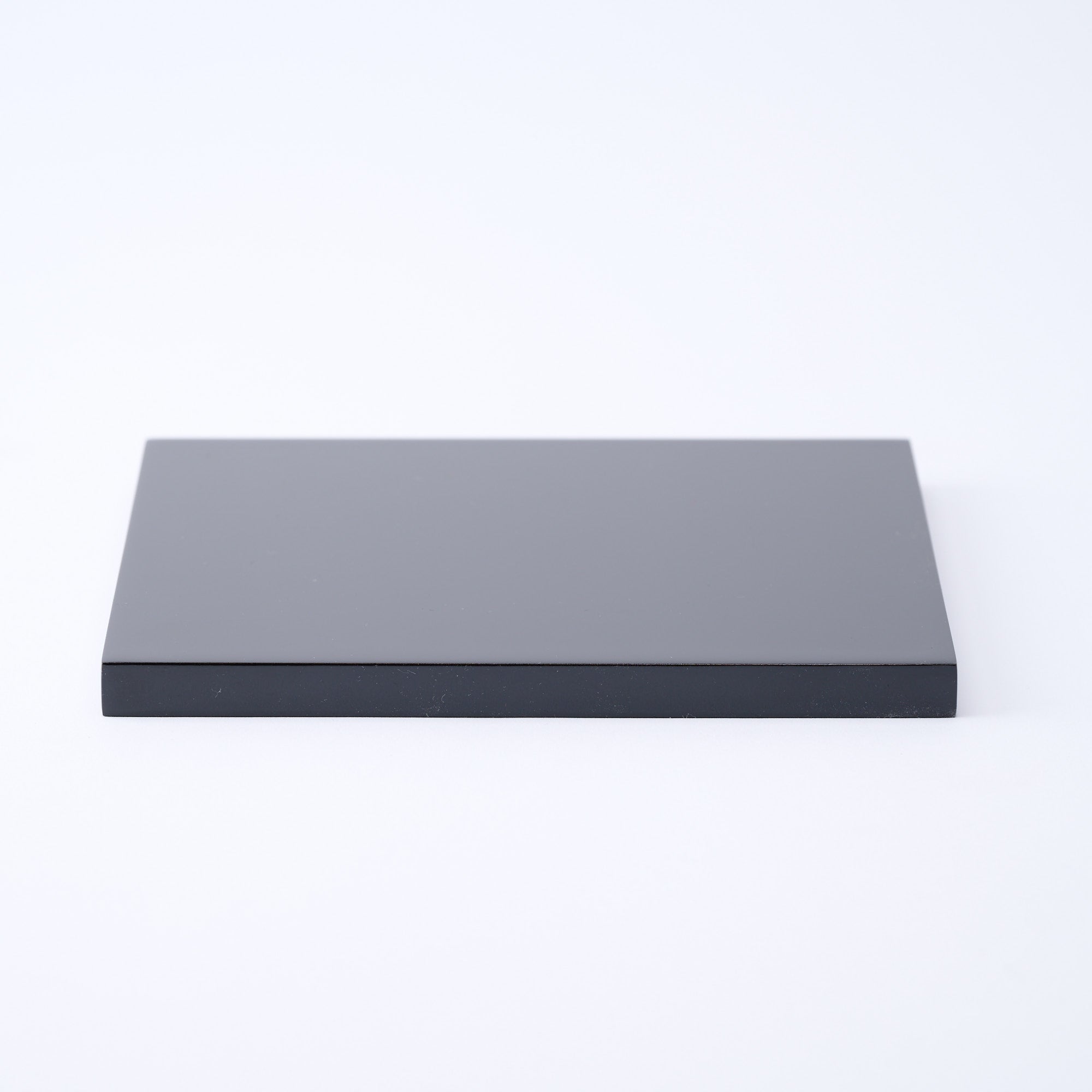
Yamato Domaru Samurai-Rüstungsornament
Estimated Shipping Widget will be displayed here!
Dieses ornamentale domaru Samurai-Rüstungen vereinen raffinierte Kunstfertigkeit und Stärke in kompakter Form. Sie sind einem leichten Rüstungsstil nachempfunden, der in der späten Heian-Zeit (794–1185 n. Chr.) beliebt war, und spiegeln die strategische Zweckmäßigkeit wider, die einst auf dem Schlachtfeld geschätzt wurde. Das leuchtende Rot, das in Japan seit langem mit Schutz und Triumph assoziiert wird, verleiht ihnen eine markante, würdevolle Präsenz.
Mit einer Höhe von ca. 26 cm (10,2 Zoll) ist es von bescheidener Größe – ideal für Nischen, Regale oder Schreibtische. Obwohl es in Japan oft zum Kindertag ausgestellt wird, um Wachstum und Widerstandsfähigkeit zu feiern, eignet es sich dank seines zeitlosen Designs und seiner markanten Form auch für die ganzjährige Freude. Ob in einem traditionellen oder modernen Ambiente, es vermittelt ein ausgeprägtes Gefühl von Tradition und Charakter.
Jedes Stück wird in Handarbeit mit Edo Kimekomi gefertigt, einer traditionellen Technik aus der Edo-Zeit (1603–1868 n. Chr.), die für ihre geformten Holzkerne und passgenauen Stoffeinlagen bekannt ist. Die weichen Texturen, die goldenen Akzente und die mehrschichtige Konstruktion zeugen von der Sorgfalt und Präzision erfahrener Handwerker. Mit einem schwarz lackierten Sockel und einem hölzernen Namensschild ist es auch ein bedeutungsvolles Geschenk für Liebhaber der japanischen Kultur.
EINZELHEITEN
| Quantity | 1 doll, 1 decorative stand, 1 wooden name plate |
| Size |
[Doll] D 9.5 cm (3.7in) x W 9.0 cm (3.5 in) x H 26.0 cm (10.2 in) [Decorative stand] L 15.0 cm (5.9 in) x W 18.0 cm (7.1 in) x 1.2 cm (0.5 in) |
| Material |
[Doll] MDF (Medium Density Fiberboard), fabric [Decorative stand] MDF (Medium Density Fiberboard) |
Hersteller / Marke
Kakinuma Ningyo, gegründet 1950, gilt als Leuchtturm der Exzellenz im Bereich der Edo Kimekomi Puppen, einer herausragenden Form traditioneller japanischer Handwerkskunst. Von klassischen hina Puppen und Boys' Day Puppen bis hin zu fantasievollen modernen Kreationen wie Maneki Neko (Glückskatzen) und DarumaJedes Stück verbindet nahtlos jahrhundertealte Kunstfertigkeit mit einem Hauch zeitgenössischer Eleganz. Mit dem Bekenntnis zur Innovation und gleichzeitiger Wahrung der Tradition schafft Kakinuma Ningyo weiterhin außergewöhnliche Werke, die Vergangenheit und Gegenwart japanischer Handwerkskunst verbinden.
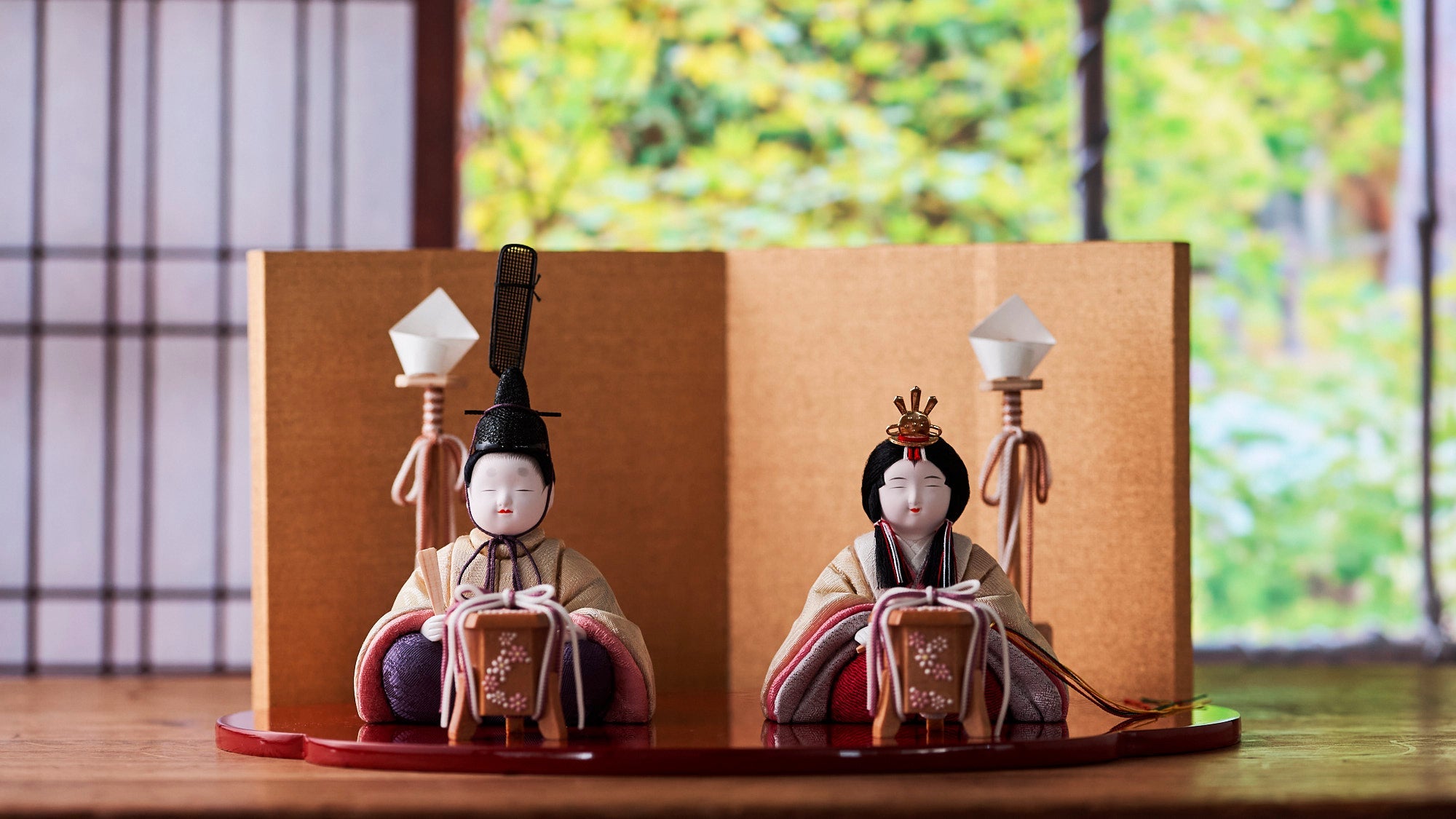
Kunsthandwerk
Edo-Kimekomi-Puppen sind kleine Holzpuppen aus Paulownia-Holz, die mit traditionellen japanischen Seidentextilien bekleidet sind.
Ursprünglich aus Kyoto stammend, wurden Kimekomi-Puppen nach Edo (dem heutigen Tokio) eingeführt, wo sie ihren ganz eigenen Stil entwickelten. Diese äußerst fein gearbeiteten Figuren sind beliebte Souvenirs mit Wurzeln in der japanischen Tradition.
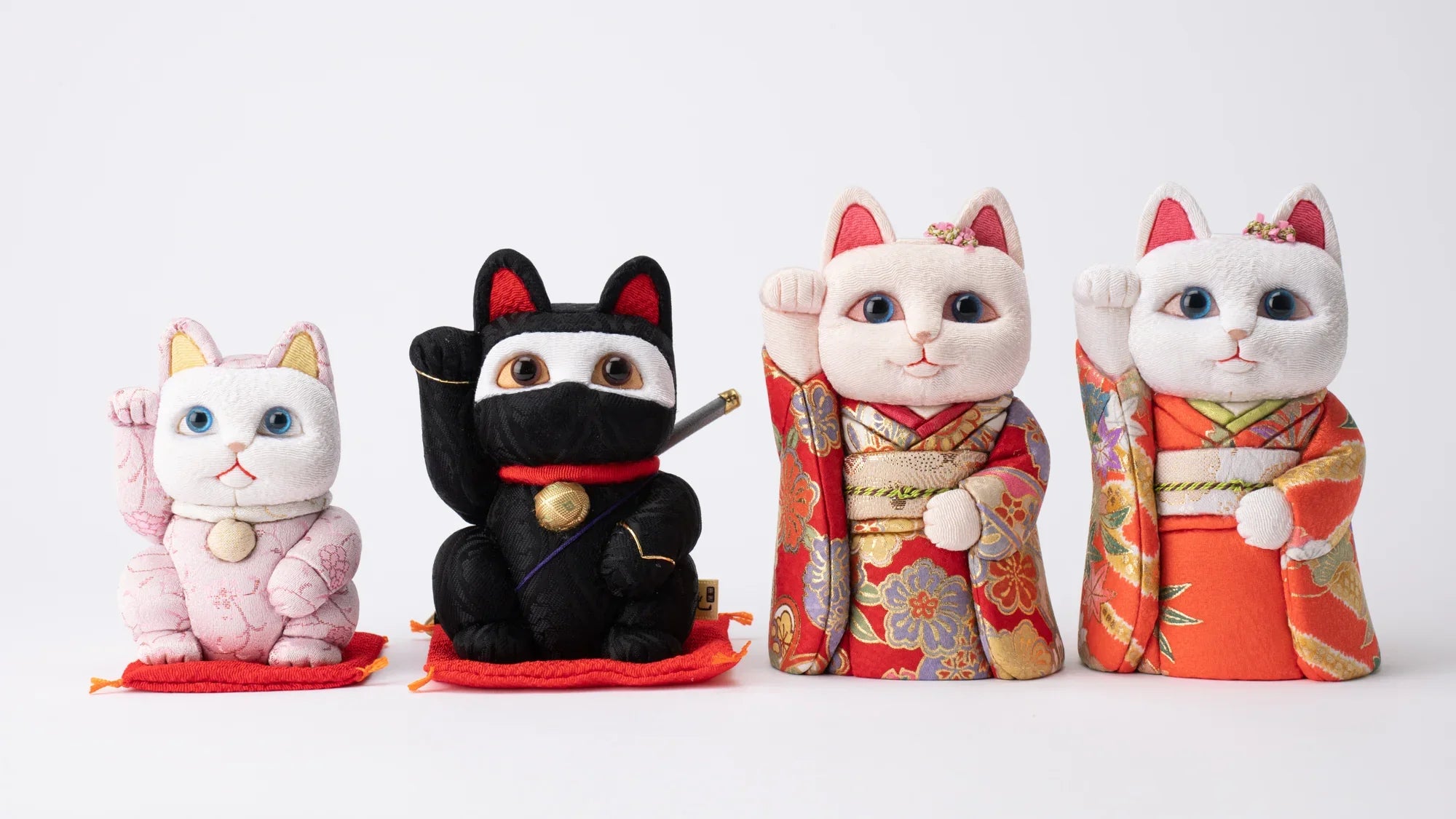
Optionen auswählen


























Estimated Shipping Widget will be displayed here!
Maifestpuppen
Maifestpuppen sind Puppen, die zum Tango-no-Sekku, auch bekannt als Kindertag oder Jungentag, verwendet werden. Die Tradition entstand in der Nara-Zeit (710 n. Chr.–794 n. Chr.). In der Edo-Zeit (1603 n. Chr.–1868 n. Chr.) wurde der 5. Mai zum Feiertag und als Tango-no-Sekku eingeführt. Während dieser Zeit wurde das Fest unter der einfachen Bevölkerung von Edo weithin gefeiert und man begann, Puppen als Dekoration zu verwenden.
Die Platzierung dieser Puppen symbolisiert die gemeinsame Feier der Geburt eines Jungen in der Familie und verkörpert die Hoffnung, dass das Kind Krankheiten, Unfälle und anderes Unglück vermeiden und stark und gesund aufwachsen möge. Rüstungen und Helme werden als Talismane zum Schutz des Körpers ausgestellt und drücken Wünsche für Sicherheit, Gesundheit und ein kräftiges Wachstum aus.
